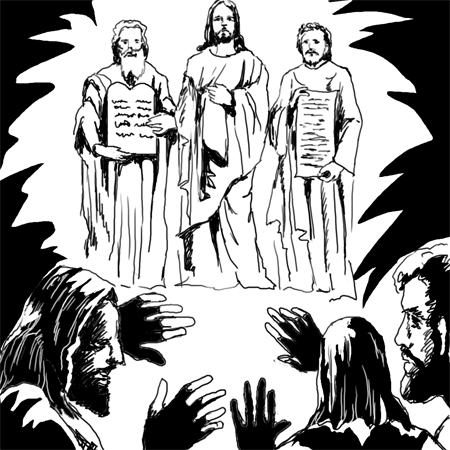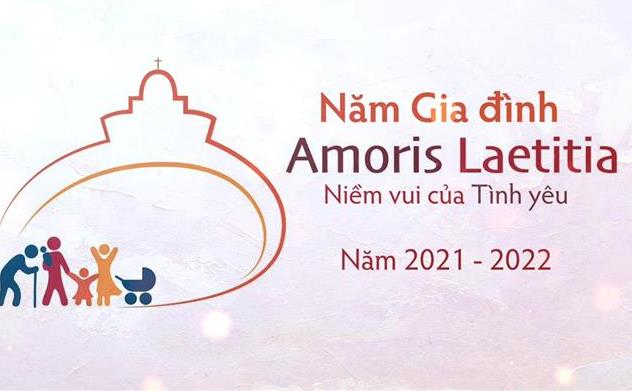 2 Sunday of Lent, Year B
2 Sunday of Lent, Year B
Gn 22:1-2, 9a, 10-13,15-18; Rom 8:31-34; Mk 9:1-9
Introduction: This is a homily/Scripture reflection in a book, titled: ‘Every Week God Speaks We Respond’ Cycle B, intended to be published in the future by Reverend John Tran Binh Trong.
It was published in Vietnamese in the US 2008 and republished in Viet Nam 2011. To keep the author’s writing style, this homily has not been edited and may not be by a hired hand. However, if readers would like to point out mistake(s) in spelling and grammar and to suggest English phrases and expressions, it would be greatly appreciated by the author, whose English is not his mother tongue and who did not live in the US until his adulthood. Passive sentences are used intentionally in this context as to avoid using the first personal pronoun ‘I’ when applicable, that might be associated with any idea of egotism, in accord with the French saying, known as: ‘Le moi est haissable’ (The ego is detestable).
Foretelling the apostles about his passion and death, he would suffer in the hands of the elders, the high priests and the scribes, Jesus realized the apostles would feel dejected and fearful. They could not imagine how their master could suffer. They wanted Jesus to follow the human way by trying to avoid suffering and death. That is why Peter, took Jesus aside and tried to dissuade him (Mk 8:32).
In order to help the apostles, especially Peter, James and John cope with his agony in the garden of Gethsemane and his cross on Calvary, Jesus took the three apostles up to the mountain and transfigured before their eyes to show them the glory of his kingdom. The purpose was to strengthen their faith and enliven their hope in the prospect of the Good Friday. The Church has considered Abraham’s willingness to sacrifice his son as a foreshadowing of Jesus’ sacrifice on the cross as a ransom for our sins.
In order to test Abraham’s faith, God wanted him to sacrifice his son Isaac as the sacrificial offering. Isaac was his only son whom God promised Abraham when he was 100 years old (Gn 21:5) and his wife at her withered age (Gn 18:12). By faith, Abraham was ready to offer his son as the sacrificial offering, even though he was promised that through his son his descendants would bear his name (Gn 21:12). Pleased with Abraham’s obedience and trust, God sent his angel to stop Abraham from doing harm to his son and promised to make his descendants as countless as the stars of the sky and the sands of the seashore (Gn 22: 17). After the transfiguration, Jesus ordered the apostles not to tell anyone what they had seen before the Son of man had risen from the dead (Mk 9:9). The apostles obeyed Jesus’ words by telling no one about the transfiguration until after Jesus’ resurrection.
However, they still wondered what was rising from the dead meant. Since then, the apostles observed and reflected those scenes of opposition and slander against their master when Jesus was arrested in the garden of Gethsemane, when he was insulted by people, ridiculed and interrogated and flogged by the soldiers and then crowned with thorns, when he was forced to carry the cross, and put to death.
Those scenes of persecutions and insults made the apostles dejected and frightened. They were dejected because their master’s death destroyed all their hope. They were frightened because the Jews were looking for them to persecute them. When they were told that Jesus had risen from the dead, they were in a quandary not to know what to do.
Only when encountering the risen Lord, they became reassured and understood the meaning of Jesus’ rising from the dead. Since then, they went forth to bear witness to the risen Lord. To share the master’s joy of resurrection, they had to go through persecutions, prisons, and death on the cross like their master.
That was exactly what Jesus said: No slave is greater than his master. They will harry you as they harried me (Jn 15:20). Thus, the theological notion of rising from the dead was also applied to the apostles. The Christian martyrs also understood what was rising from the dead meant before they could let their persecutors execute death sentences. For us, what does it mean by rising from the dead in our lives?
A very important event happened in our lives and brought us spiritual life was the sacrament of baptism. When we were baptized, we rose from death to sin to the life of grace. From thence in our daily lives, we have undergone through similar processes from death to life, not like those of the apostles and martyrs, but in smaller scales.
When we are willing to suffer and lose in this life, like losing jobs, social positions and friends only because we believe in God and keep his commandments, it means we die to self a little as to rise with him in grace. When we are willing to die to sin and to what leads to sin, we will experience the meaning of rising from the dead. We pray that we may also rise from the dead when we lie down for good.
Prayer for rising from the dead:
Oh Lord, our God! we thank you for your coming
to suffer and die for our sins
including my own.
May I be willing to die to sins
and all kinds of vices
so that I may rise in grace with you
and contemplate the glory of the transfiguration
in the life to come. Amen.
John Tran Binh Trong



 Every Week God Speaks – We Respond, Cycle A was published Online in the US. The introduction of the book is recorded at “Sách của Tác giả Chủ trương, Column 1.
Every Week God Speaks – We Respond, Cycle A was published Online in the US. The introduction of the book is recorded at “Sách của Tác giả Chủ trương, Column 1.

 Năm Mục Vụ Giới Trẻ 2021. HĐGM ấn định một chương trình Mục vụ Giới trẻ 3 năm với các chủ đề tương ứng: Năm 2020: Đồng hành với người trẻ hướng tới sự trưởng thành toàn diện.
Năm Mục Vụ Giới Trẻ 2021. HĐGM ấn định một chương trình Mục vụ Giới trẻ 3 năm với các chủ đề tương ứng: Năm 2020: Đồng hành với người trẻ hướng tới sự trưởng thành toàn diện. Năm Thánh Giu-se: Nhân kỷ niệm 150 năm Đức Giáo hoàng Pio IX chọn thánh Giuse làm Đấng Bảo Trợ Giáo Hội Công Giáo, Đức Phanxicô đã ban hành Tông thư “Patris corde” – Trái tim của người Cha – và công bố “Năm đặc biệt về thánh Giuse” từ
Năm Thánh Giu-se: Nhân kỷ niệm 150 năm Đức Giáo hoàng Pio IX chọn thánh Giuse làm Đấng Bảo Trợ Giáo Hội Công Giáo, Đức Phanxicô đã ban hành Tông thư “Patris corde” – Trái tim của người Cha – và công bố “Năm đặc biệt về thánh Giuse” từ  Năm “Gia đình Amoris Laetitia” 2021 về “Vẻ đẹp và niềm vui của tình yêu gia đình” do Bộ Giáo Dân, Gia Đình và Sự Sống tổ chức, được Đức Phanxicô khai mạc dịp Lễ Thánh Giuse
Năm “Gia đình Amoris Laetitia” 2021 về “Vẻ đẹp và niềm vui của tình yêu gia đình” do Bộ Giáo Dân, Gia Đình và Sự Sống tổ chức, được Đức Phanxicô khai mạc dịp Lễ Thánh Giuse 
